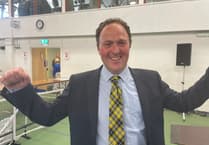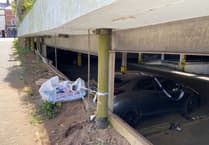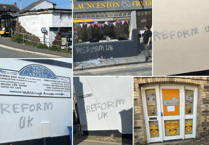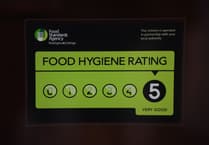A Launceston vicar is calling for support for the dispossessed of India.
The vicar for the Benefice of Launceston, Mother Alison Hardy has known Brother Samuel John for more than three decades. In that time, she’s grown to become an enthusiastic advocate of his mission to “reach the unreached” in the Andhra Pradesh region of southern India, where he has established a network 250 new churches.
On their most recent visit, Rev Hardy and the Reverend Nikki Farr, curate at Launceston, visited several of those churches. They also visited a children’s home, a leper colony and a site occupied by displaced indigenous tribespeople.
It was Brother Samuel’s father who set up the mission’s four children’s homes. Many of the children supported in the homes come from remote rural areas. Most have no family at all to care for them.
“The orphanage gives them an education and training, irrespective of their gender or caste,” Rev Hardy explains. “It can even put them through university too.”
It saves them from severe malnutrition and the prospect of lives in crime or prostitution.
“It was a delight to see their bright smiling faces full of hope and light,” Rev Farr says.
“What stood out for me was the care and compassion for the children,” adds Rev Hardy. “It felt like one big family.”
It costs just £22 a month to support a child in one of these homes. Reverends Hardy and Farr are hopeful that people and communities in Cornwall might come together to help to support those efforts.
On their recent visit, they also visited a leper colony supported by Brother Samuel’s mission. It was Rev Hardy’s third visit to the group. Her first had been 27 years ago.
At that time, the people with leprosy lived on a beach. They were only allowed into town once a week to beg.
“I was shocked,” Rev Hardy says. “They would hide themselves away. It was considered a curse. People didn’t seem to know that leprosy can be cured.”
When she returned 15 years ago, she found that people’s understanding of the illness was still limited.
“They were amazed that we’d shake them by the hand,” she says. “They didn’t know you can’t contract leprosy that way.”
These days they at least have accommodation, built for them by a local Hindu businessman. But, as the Indian government has declared the nation to be free of the disease, there are no medicines available to treat them.
“They’re living with leprosy and dying of leprosy,” Rev Hardy says. “They have their children with them. The church provides food parcels, but can’t do anything to help arrest the illness or stop others catching it. It’s a horrendous situation.”
There are 60 people in the group supported by the mission. Members of Brother Samuel’s church deliver food to them once a month. They give as much as they can afford to give. Each parcel should be enough to last them a fortnight.
“It was such a humbling experience,” says Rev Farr. “The people sang and praised God with smiles of joy.”
Reverends Hardy and Farr also visited a group of indigenous tribespeople forced to leave their protected forest territory by hunger and need.
“It’s hard to scrape a living in the forest,” Rev Hardy explains. “But when they come out of the forest, they receive a very cold welcome. They can’t work or access support or education. They’re illiterate. They have to beg.”
This particular group of around 30 people live next to a rubbish dump.
“They literally live off the rubbish,” Rev Hardy says. “They welcomed us into their homes, homes made of sticks and bits of plastic. When it rains, the rain just runs through their hovels. It’s a pitiful existence.”
These experiences have left Rev Hardy with conflicting feelings.
“It gives me great encouragement to see what they’re doing with so very little,” she says. “They bring a great spiritual richness to us, we have a lot to learn from them. At the same time, I also felt outraged at seeing certain sections of humanity cast aside and not cared for – indigenous people, people with leprosy, unwanted children. Yet what warms me to the church there is that they’re reaching out in compassion to these people.”
“Each of these strands of mission are funded by the kindness of generous donors,” Rev Farr reminds us.
To find out more contact [email protected]





Comments
This article has no comments yet. Be the first to leave a comment.